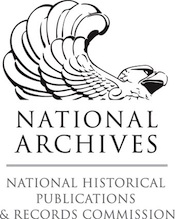The “Esau Jenkins Papers, 1963-2003” Collection Has Been Updated!
Thanks to the generous support from the National Historical Publications and Records Commission (NHPRC) grant program, the Lowcountry Digital Library (LCDL) has been able to digitize much of the remaining materials from the “Esau Jenkins Papers, 1963-2003” from the Avery Research Center for African American History and Culture.
Esau Jenkins (1910-1972) was born and raised on Johns Island, South Carolina. With very little formal education, he became a businessman and civil rights leader. Jenkins founded the Progressive Club in 1948, which encouraged local African Americans to register to vote, through the aid of Citizenship Schools, a topic he was educated in by his attendance at Highlander Folk Center in Tennessee. In 1959, he organized the Citizens' Committee of Charleston County dedicated to the economic, cultural and political improvement of local African Americans.
The LCDL now provides researchers with online access to correspondence, photographs, and other accumulated materials regarding Lowcountry organizations, In particular, these documents provide an insight into the formation and business activities of the Community Owned Credit Union (C. O. Credit Union) and the Sea Island Center Comprehensive Health Care Corporation.
Highlights from this collection include a newspaper article entitled, “Debate Brews Over ‘Little Black Schoolhouse,’” wherein Jenkins clarifies an error in Jack Leland's previously published article, "Errors of Fact Cloud Report on Negroes of John's Island," a list of Jenkins’ aphorisms, and photographs of the Sea Island Center and Esau Jenkins, Alfred Fields, and Rev. Willis Goodwin standing beside a Citizens Committee Bus. We would be remiss if we forgot to mention a wonderful photograph of Jenkins being chased by a group of smiling children on Johns Island, South Carolina.
We hope you find this collection enlightening and greatly look forward to providing the next collection from the Avery Research Center for African American History and Culture!
This collection was digitized and made freely available online through the generous support of the National Historical Publications & Records Commission.

